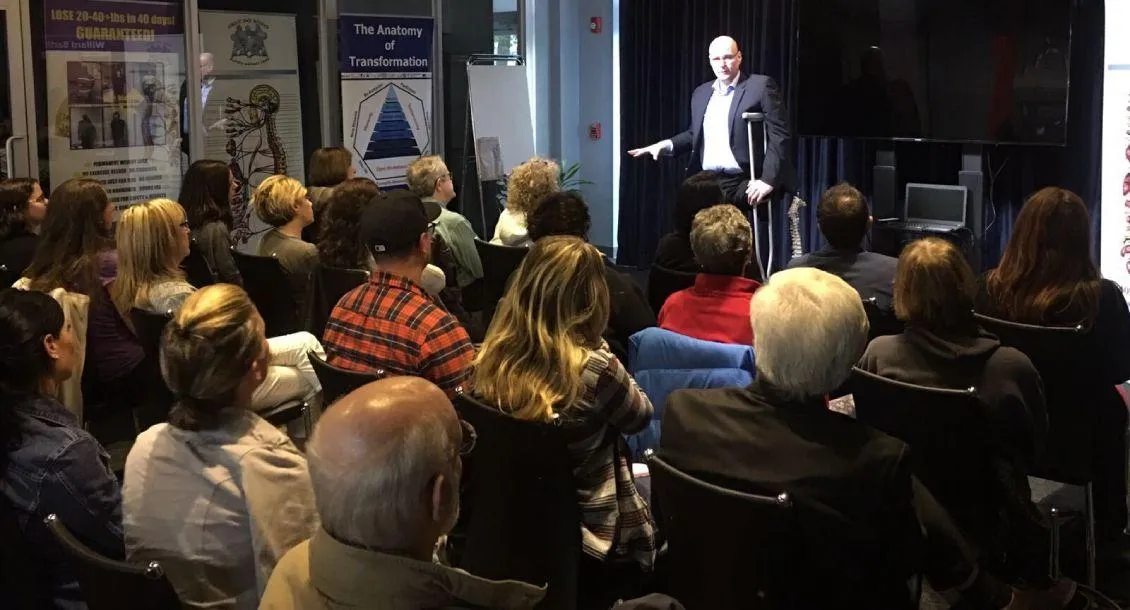
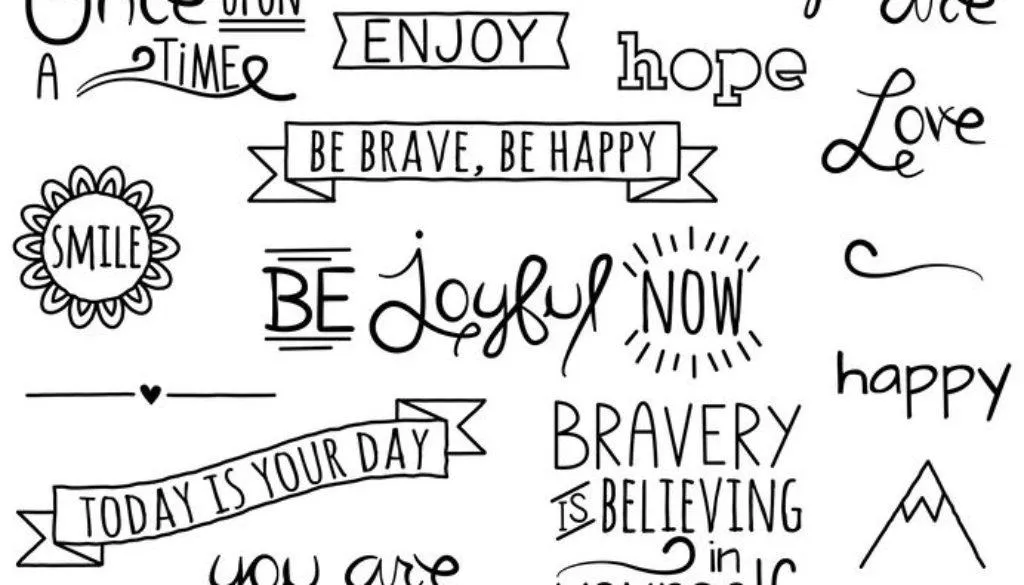
The Courage to Live Consciously
THE COURAGE TO LIVE CONSCIOUSLY
Security is mostly a superstition. It does not exist in nature, nor do the children of men as a whole experience it. Avoiding danger is no safer in the long run than outright exposure. Life is either a daring adventure, or nothing. To keep our faces toward change and behave like free spirits in the presence of fate is strength undefeatable. – Helen Keller
In our day-to-day lives, the virtue of courage doesn’t receive much attention. Courage is a quality that we usually equate to soldiers, firefighters, and activists. Security seems to be what matters most to people today. Perhaps you were taught to avoid being too bold or too brave. You were told things like, “It’s too dangerous. Don’t take unnecessary risks. Don’t draw attention to yourself in public. Follow family traditions. Don’t talk to strangers. Keep an eye out for suspicious people. Stay safe.”
But a side effect of overemphasizing the importance of personal security in your life is that it can cause you to live reactively. Instead of setting your own goals, making plans to achieve them, and going after them with intensity and passion, you play it safe. You keep working at the stable job, even though it doesn’t fulfill you. You remain in the unsatisfying relationship, even though you feel dead inside compared to the passion you once had. Who are you to think that you can buck the system? Accept your lot in life, and make the best of it. Go with the flow, and don’t rock the boat. Your only hope is that the flow of life will pull you in a favorable direction.
No doubt there exist real dangers in life you must avoid. But there’s a huge difference between recklessness and courage. I’m not referring to the heroic courage required to risk your life to save someone from a burning building. By courage I mean the ability to face down those imaginary fears and reclaim the far more powerful life that you’ve denied yourself. Fear of failure. Fear of rejection. Fear of going broke. Fear of being alone. Fear of humiliation. Fear of public speaking. Fear of being ostracized by family and friends. Fear of physical discomfort. Fear of regret. Fear of success.
How many of these fears are holding you back? How would you live if you had no fear at all? You’d still have your intelligence and common sense to safely navigate around any real dangers, but without feeling the emotion of fear, would you be more willing to take risks, especially when the worst case wouldn’t actually hurt you at all? Would you speak up more often about things that matter to you, talk to more strangers, ask for more sales, dive headlong into those ambitious projects you’ve been dreaming about? What if you even learned to enjoy the things you currently fear? What kind of difference would that make in your life?
Have you previously convinced yourself that you aren’t really afraid of anything… that there are always good and logical reasons why you don’t do certain things? It would be rude to introduce yourself to a stranger. You shouldn’t attempt public speaking because you don’t have anything to say. Asking for a raise would be improper because you’re supposed to wait until the next formal review. These are just rationalizations though – think about how your life would change if you could confidently and courageously do these things with no fear at all.
What Is Courage?
Courage is not the absence of fear, but rather the judgment that something else is more important than fear. – Ambrose Redmoon
Courage is resistance to fear, mastery of fear – not absence of fear. – Mark Twain
Courage is being scared to death, but saddling up anyway. – John Wayne
I like these definitions of courage, which all suggest that courage is the ability to get yourself to take action in spite of fear. The word courage comes from the Latin cor, which means “heart.” But true courage is more a matter of intellect than of feeling. It requires using the uniquely human part of your brain (the neocortex) to demand control over the emotional limbic brain you share in common with other mammals. Your limbic brain signals danger, but your neocortex reasons that the danger isn’t real, so you simply feel the fear and take action anyway. The more you learn to act in spite of fear, the more human you become. The more you follow the fear, the more you live like a lower mammal. So the question, “Are you a man or a mouse?” is consistent with human neurology.
Courageous people are still afraid, but they don’t let the fear paralyze them. People who lack courage will give into fear more often than not, which actually has the long-term effect of strengthening the fear. When you avoid facing a fear and then feel relieved that you escaped it, this acts as a psychological reward that reinforces the mouse-like avoidance behavior, making you even more likely to avoid facing the fear in the future. So the more you avoid asking someone out on a date, the more paralyzed you’ll feel about taking such actions in the future. You are literally conditioning yourself to become more timid and mouse-like.
This type of “avoidance behavior” leads to a kind of paralyzation in the long run. As you get older, you reinforce your fear reactions to the point where it’s hard to even imagine yourself standing up to your fears. You begin taking your fears for granted; they become real to you. You create this imaginary wall around yourself that insulates you from all these fears: a stable but unhappy marriage, a job that doesn’t require you to take risks, an income that keeps you comfortable. Then you rationalize your behavior: You have a family to support and can’t take risks, you’re too old to shift careers, you can’t lose weight because you have “fat” genes. Five years… ten years… twenty years soon pass, and you realize that your life hasn’t changed all that much. You’ve settled down. All that’s really left now is to live out the remainder of your life as contently as possible and then be lowered into the ground, where you’ll finally achieve total safety and security.
But there’s something else going on behind the scenes, isn’t there? There’s that tiny voice in the back of your mind reminding you that this isn’t the kind of life you wanted to live. It wants more, much more. It wants you to become far wealthier, to have an outstanding relationship, to get your body in peak physical condition, to learn new skills, to travel the world, to have lots of wonderful friends, to help people in need, to make a meaningful difference. That voice tells you that settling into a job where you sell widgets the rest of your life just won’t cut it. That voice gnaws at you when you catch a glance of your oversized belly in the mirror or get winded going up a flight of stairs. It shares its disappointment when it recognizes what’s become of your family. It tells you that the reason you have trouble motivating yourself is that you aren’t doing what you really ought to be doing with your life… because you’re afraid. And if you refuse to listen, it will still be there, nagging you about your mediocre results until you die, full of regrets for what might have been.
So how do you respond to this annoying voice that won’t shut up? What do you do when confronted by that gut feeling that something just isn’t right in your life? What’s your favorite way to silence it? Maybe you drown it out by watching TV, listening to the radio, working long hours at an unfulfilling job, or consuming alcohol and caffeine and sugar.
But whenever you do this, you lower your level of consciousness. You move closer towards an instinctive animal and away from becoming a fully conscious human being. You react to life instead of proactively going after your goals. You fall into a state of learned helplessness, where you begin to believe that your goals are no longer possible or practical for you. You become more and more like a mouse, even trying to convince yourself that life as a mouse might not be so bad after all, since everyone around you seems to be OK with it. You surround yourself with your fellow mice, and on the rare occasions that you encounter a fully conscious human being, it scares the hell out of you to remember how much of your own courage has been lost.
Raise Your Consciousness
Life shrinks or expands in proportion to one’s courage. – Anais Nin
Courage is the price that Life exacts for granting peace. – Amelia Earhart
You gain strength, courage and confidence by every experience in which you really stop to look fear in the face. You are able to say to yourself, “I have lived through this horror. I can take the next thing that comes along.” You must do the thing you think you cannot do. – Eleanor Roosevelt
The way out of this vicious cycle is to summon your courage and confront that inner voice. Find a place where you can be alone with pen and paper (or computer and keyboard). Listen to that voice, and face up to what it’s telling you, no matter how difficult it is to hear. (The voice is just an one method your unconscious uses to communicate with you – you may not hear words at all; instead you may see what you should be doing or simply feel it emotionally. But I’ll continue to refer to the voice for the sake of this example.) This voice may tell you that your marriage has been dead for ten years, and you’re refusing to face it because you’re afraid of divorce. It may tell you that you’re afraid that if you start your own business, you’ll probably fail, and that’s why you’re staying at a job that doesn’t challenge you to grow. It may tell you that you’ve given up trying to lose weight because you’ve failed at it so many times, and you’re addicted to food. It may tell you that the friends you’re hanging out with now are incongruent with the person you want to be, and that you need to leave that group behind and build a new one. It may tell you that you always wanted to be an actor or writer, but you settled for a sales job because it seemed more safe and secure. It may tell you that you always wanted to help people in need, but you aren’t doing it in the way or at the level you should. It may tell you that you’re wasting your talents.
Take a moment and do your best to reduce that voice to just a single word or two. What is it telling you to do? Leave. Quit. Speak. Write. Dance. Act. Exercise. Sell. Switch. Move on. Let go. Ask. Learn. Forgive. Whatever you get from this, write it down. Perhaps you even have different words for each area of your life.
Next you have to take the difficult step of consciously acknowledging that this is what you really want now. It’s OK if you don’t think it’s possible for you. It’s OK if you don’t see how you could ever have it. But admit that you want it. You lower your consciousness when you deny it. When you look at your overweight body, admit that you really want to be fit and healthy. When you light up that next cigarette, admit that you want to be a nonsmoker. When you meet the potential mate of your dreams, resist the temptation to deny that you’d love to be in a relationship with that person. When you meet a person who seems to be at total peace with herself, allow yourself to admit that you crave that level of inner peace too. Get yourself out of denial. Move instead to a place where you admit, “I really do want this, but I just don’t feel I currently have the ability to get it.” It’s perfectly OK to want something that you don’t think you can have. And you’re almost certainly wrong in concluding that you can’t have it. But first, stop lying to yourself and pretending you don’t really want it.
Move From Fear to Action, Even if You Expect to Fail
When a resolute young fellow steps up to the great bully, the world, and takes him boldly by the beard, he is often surprised to find it comes off in his hand, and that it was only tied on to scare away the timid adventurers. – Ralph Waldo Emerson
Most of our obstacles would melt away if, instead of cowering before them, we should make up our minds to walk boldly through them. – Orison Swett Marden
Courage and perseverance have a magical talisman, before which difficulties disappear and obstacles vanish into air. – John Quincy Adams
Now that you’ve acknowledged some things you’ve been afraid to face, how do you feel? You probably still feel paralyzed against taking action. That’s okay. While diving right in and confronting a fear head-on can be very effective, that may require more courage than you feel you can summon right now.
The most important point I want you to learn from this article is that real courage is a mental skill, not an emotional one. Neurologically it means using the thinking neocortex part of your brain to override the emotional limbic impulses. In other words, you use your human intelligence, logic, and independent will to overcome the limitations you’ve inherited as an emotional mammal.
Now this may make logical sense, but it’s far easier said than done. You may logically know you’re in no real danger if you get up on a stage and speak in front of 1000 people, but your fear kicks in anyway, and the imaginary threat prevents you from volunteering for anything like this. Or you may know you’re in a dead end job, but you can’t seem to bring yourself to say the words, “I quit.”
Courage, however, doesn’t require that you take drastic action in these situations. Courage is a learned mental skill that you must condition, the same way that weight training strengthens your muscles. You wouldn’t go into a gym for the first time and try to lift 300 pounds, so don’t think that to be courageous you must tackle your most paralyzing fear right away.
There are two methods I will suggest for building courage. The first approach is similar to progressive weight training. Start with weights you can lift but which are challenging for you, and then progressively train up to heavier and heavier weights as you grow stronger. So tackle your smallest fears first, and progressively train up to bigger and bigger fears. Training yourself to lift 300 pounds isn’t so hard if you’ve already lifted 290. Similarly, speaking in front of an audience of 1000 people isn’t so tough once you’ve already spoken to 900.
So grab a piece of paper right now, and write down one of your fears that you’d like to overcome. Then number from one to ten, and write out ten variations of this fear, with number one being the least anxiety-producing and number ten being the most anxiety-producing. This is your fear hierarchy. For example, if you’re afraid of asking someone out on a date, then number one on your list might be going out to a public place and smiling at someone you find attractive (very mild fear). Number two might be smiling at ten attractive strangers in a single day. Number ten might be asking out your ideal date in front of all your mutual friends, when you’re almost certain you’ll be turned down flat and everyone in the room will laugh (extreme fear). Now start by setting a goal to complete number one on your list. Once you’ve had that success (and success in this case simply means taking action, regardless of the outcome), then move on to number two, and so on, until you’re ready to tackle number ten or you just don’t feel the fear is limiting you anymore. You may need to adjust the items on your list to make them practical for you to actually experience. And if you ever feel the next step is too big, then break it down into additional gradients. If you can lift 290 pounds but not 300, then try 295 or even 291. Take this process as gradually as you need to, do it in a way that the next step is a mild challenge for you but one you feel fairly confident you can complete. And feel free to repeat a past step multiple times if you find it helpful to prepare you for the next step. Pace yourself.
By following this progressive training process, you’ll accomplish two things. You’ll cease reinforcing the fear/avoidance response that you exhibited in the past. And you’ll condition yourself to act more courageously in future situations. So your feelings of fear will diminish at the same time that your expression of courage grows. Neurologically you’ll be weakening the limbic control over your actions while strengthening the neocortical control, gradually moving from unconscious mouse-like to conscious human-like behavior.
The second approach to building courage is to acquire additional knowledge and skill within the domain of your fear. Confronting fears head-on can be helpful, but if your fear is largely due to ignorance and lack of skill, then you can usually reduce or eliminate the fear with information and training. For example, if you’re afraid to quit your job and start your own business, even though you’d absolutely love to be in business for yourself, then start reading books and taking classes on how to start your own business. Spend an afternoon at your local library researching the subject, or do the research online. Join the local Chamber of Commerce and any relevant trade organizations in your field. Attend conferences. Build connections. Enlist the help of a mentor. Build your skill to the point where you start to feel confident that you could actually succeed, and this knowledge will help you act more boldly and courageously when you’re ready. This method is especially effective when a large part of your fear is due to the unknown. Often just reading a book or two on the subject will be enough to dispel the fear so that you’re able to take action.
These two methods are my personal favorites, but there are many additional ways to condition yourself to overcome fear, including neuro associative programming, neuro-linguistic programming, cognitive therapy, and self-confrontation. You can research them via an online search engine if you wish to learn such methods and increase the number of fear-busting tools in your arsenal. Most of these can be easily self-administered.
The exact process you use to build courage isn’t important. What’s important is that you consciously do it. Just as your muscles will atrophy if you don’t regularly stress them, your courage will atrophy if you don’t consistently challenge yourself to face your fears. In the absence of this kind of conscious conditioning, you’ll automatically become weak in both body and mind. If you aren’t regularly exercising your courage, then you are strengthening your fear by default; there is no middle ground. Just as your muscles automatically atrophy from lack of use, so your courage will automatically decay in the absence of conscious conditioning.
Now this may sound overly gloomy, so here’s a positive way to look at it. Heavy weights can be a physical burden, but they are helpful tools to build strong muscles. You would not look at a 45-pound dumbbell and say, “Why must you be so heavy?” It is what it is. Heaviness is your thought, not an intrinsic property of the dumbbell itself. Similarly, do not look at the things you fear and say, “Why must you be so scary?” Fear is your reaction to, not a property of, the object of your anxiety.
Fear is not your enemy. It is an advisor pointing you to the areas where you need to grow. So when you encounter a new fear within yourself, celebrate it as an opportunity for growth, just as you would celebrate reaching a new personal best with strength training.
Catch a Glimpse of Your Own Greatness
Everyone has talent. What is rare is the courage to follow the talent to the dark place where it leads. – Erica Jong
The highest courage is to dare to appear to be what one is. – John Lancaster Spalding
Whatever you do, you need courage. Whatever course you decide upon, there is always someone to tell you that you are wrong. There are always difficulties arising that tempt you to believe your critics are right. To map out a course of action and follow it to an end requires some of the same courage that a soldier needs. Peace has its victories, but it takes brave men and women to win them. – Ralph Waldo Emerson
So now what do you do with your newly developed courage? Where will it lead you? The answer is that it will allow you to lead a far more fulfilling and meaningful life. You will truly begin living as a daring human being instead of a timid mouse. You will uncover and develop your greatest talents. You will begin living far more consciously and deliberately than you ever have before. Instead of reacting to events, you will proactively design your own events.
Courage is something you can only truly experience alone. It is a private victory, not a public one. Summoning the courage to listen to your innermost desires is not a group activity and does not result from building a consensus with others. Kahlil Gibran writes in The Prophet, “The vision of one man lends not its wings to another man.” The purpose of your existence is yours alone to discover. No one on earth has lived through the exact same experiences you have, and no one thinks the exact same thoughts you do.
On the one hand, this can be a lonely realization. Whether you live alone or enjoy the deepest intimacy with a loving partner, deep down you must still face the reality that your life is yours alone to live. You can choose to temporarily yield control of your life to others, whether it be to a company, a spouse, or simply to the pressures of daily living, but you can never give away your personal responsibility for the results. Whether you assume direct and conscious control over your life or merely react to events as they happen to you, you and you alone must bear the consequences.
If you commit to following the path of courage, you will ultimately be forced to confront what is perhaps the greatest fear of all – that you are far more powerful and capable than you initially realized, that your ultimate potential is far greater than anything you’ve experienced in your past, and that with this power comes tremendous responsibility. You may not be able to solve all the problems of this planet, but if you ever do commit yourself 100% to the fulfillment of your true potential, you can significantly impact the lives of many people, and that impact will ripple into the future for generations to come.
What is the difference between you and one of those legendary historical figures who did have that level of impact? You both had many of the same fears. You both were born with talents in some areas and weaknesses in others. The only thing stopping you is fear, and the only thing that will get you past it is courage. What you do with your life isn’t up to your parents, your boss, or your spouse. It’s up to you and you alone.
Catching a glimpse of your own greatness can be one of the most unsettling experiences imaginable. And even more disturbing is the awareness of the tremendous challenges that are ahead of you if you accept it. Living consciously is not an easy path, but it is a uniquely human experience, and it requires making the committed decision to permanently let go of that mouse within you. Going after your greatest and most ambitious dreams and experiencing failure and disappointment, intentionally running up against your most humbling human limitations instead of living with a comfortable padding of potential – these fears are common to us all.
The first few times you encounter such fears, you may quickly default back to the imaginary security of life as a mouse. But if you keep exercising your courage, you will eventually mature to the point where you can openly accept the challenges and responsibilities of life as a fully conscious human being. Continuing to live as a mouse will simply hold no more interest for you. You will acknowledge within the deepest recesses of your being, I have awakened to this incredible potential within me, and I accept what that will require of me. Whatever it costs me, whatever I must sacrifice to follow this path, bring it on. I’m ready. Even though you will still experience fear, you will recognize it for the illusion it is, and you will know how to use your human courage to face it down, so much so that fear will no longer have the power to stop you.
Embrace the Daring Adventure
Before you embark on any path ask the question, does this path have a heart? If the answer is no, you will know it and then you must choose another path. The trouble is that nobody asks the question. And when a man finally realizes that he has taken a path without a heart the path is ready to kill him. – Carlos Castaneda
The deeper that sorrow carves into your being, the more joy you can contain. Is not the cup that holds your wine the very cup that was burned in the potter’s oven? And is not the lute that soothes your spirit, the very wood that was hollowed with knives? – Kahlil Gibran
Inaction breeds doubt and fear. Action breeds confidence and courage. If you want to conquer fear, do not sit home and think about it. Go out and get busy. – Dale Carnegie
As you develop a sense of your true purpose in life, you may begin to feel an uneasy disconnect between your current life situation and the one you envision moving towards. These two worlds may seem so different to you that you cannot mentally conceive of how to build a bridge between them. How can you balance the practical reality of taking care of your third-dimensional obligations like earning money to pay your bills and taxes, pleasing your boss, raising your family, and maintaining social relationships with people who can’t even relate to what you’re experiencing vs. the new vision of yourself you desperately want to move towards? A whole host of new fears may crop up related to this seemingly impossible shift. How will you support yourself? What will become of your relationships? Are you just deluding yourself?
The best advice I can give you here is to forget about trying to build a bridge. Focus instead on beginning the process of manifesting the new vision of yourself from scratch, as if it were a totally separate thread in your life. If this creates a temporary incongruence in your life, just do it anyway. For example, suppose you currently work as a divorce attorney, but your courage tells you that you must eventually abandon this type of adversarial work. You envision yourself passionately teaching couples how to heal their broken relationships. But you can’t even begin to imagine being a trial lawyer who speaks about healthy relationships, and on top of that problem, you can’t imagine any way that you could make a decent living in this new career, at least not quickly. There’s just too much of a disconnect between this new vision and practical reality. So instead of trying to bridge this gap, just begin building your new vision completely from scratch in whatever time you have, even if it’s only an hour or two each week. Keep doing your regular work as an attorney, but in your spare time, start posting anonymously on relationship message boards to give couples advice on how to heal their relationships. Use the oratory skills you developed as an attorney to begin speaking to small groups about healing relationships. Perhaps create a new web site, and start writing and posting articles about your new passion. You don’t have to hide the fact that you’re an attorney, but don’t worry about bridging these two worlds. Live in paradox. Just start developing the new you, and allow the old one to continue in parallel for a while.
What will happen is that you’ll develop skill in your new undertaking, and you’ll eventually be able to support yourself from it, even if you can’t see how to do it right away. You may not be able to see a way to support yourself in your new vision right now, and that’s fine. Just begin it anyway, doing it for free, without any concern of how to turn it into a new full-time career. Patiently wait for clarity; you will eventually find a way to make it work. Then when the time is right, you’ll be able to peacefully let go of the old career and focus all your energy on the new one. At some point you’ll be able to commit fully to your new self. Your passion for your new work will eventually overwhelm your fear of letting go of your old source of stability. So instead of trying to transform your old career into your new one, just start the process of building your new one, and let your old one gradually fade. Even if you can only invest an hour a week in your new undertaking, you will probably discover that this hour is more fulfilling to you than all the other hours put together, and that passion will drive you to find a way to gradually grow this presence until it fills up most of your days. The most important thing is to begin now by introducing your new vision of yourself to your daily life, even if you can only initially do so in a small way.
No matter how difficult it may seem, make the choice to live consciously. Do not succumb to that half-conscious realm of fear-based thinking, filling your life with distractions to avoid facing what you really feel drawn to in those silent spaces between your thoughts. Either exercise your muscle of courage and progressively build the strength to face your deepest, darkest fears to live as the powerful being you truly are, or admit that your fears are too much for you, and embrace life as a mouse. But make this choice consciously and with full awareness of its consequences. If you are going to allow fear to win the battle for your life, then proclaim it the victor and forfeit the game. If you simply avoid living consciously and courageously, then that is equivalent to giving up on life itself, where your continued existence becomes little more than a waiting period before physical death – a life of existing as opposed to a daring adventure.
Will you allow yourself to die without embracing the daring adventure your life is meant to be? You may go broke. You may experience failure and rejection repeatedly. You may endure multiple dysfunctional relationships. But these are all milestones along the path of a life lived courageously. They are your private victories, carving a deeper space within you to be filled with an abundance of joy, happiness, and fulfillment. So go ahead and feel the fear. Then summon the courage to follow your dreams anyway. That kind of strength is undefeatable.
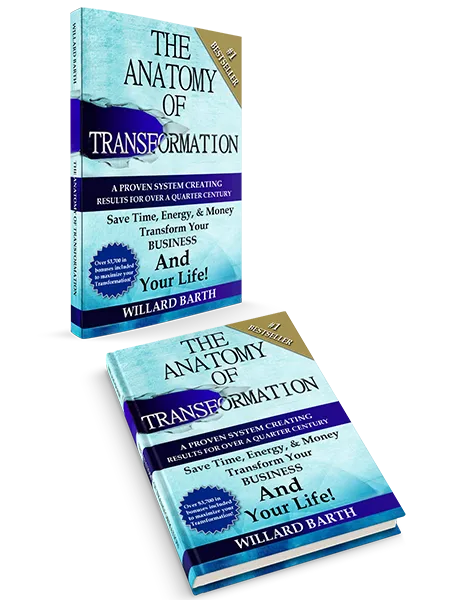
#1 Best Selling Author Willard Barth
Here is your opportunity to purchase Willard’s #1 Best Selling Book called The Anatomy of Transformation for ONLY the cost of Shipping and Handling! That’s right… Willard will pay for the book… you just pay for S&H!
The Anatomy of Transformation is a proven system that has been used over a quarter of a century helping take individuals and businesses to the next level… no matter how successful they already are!
The journey begins now!
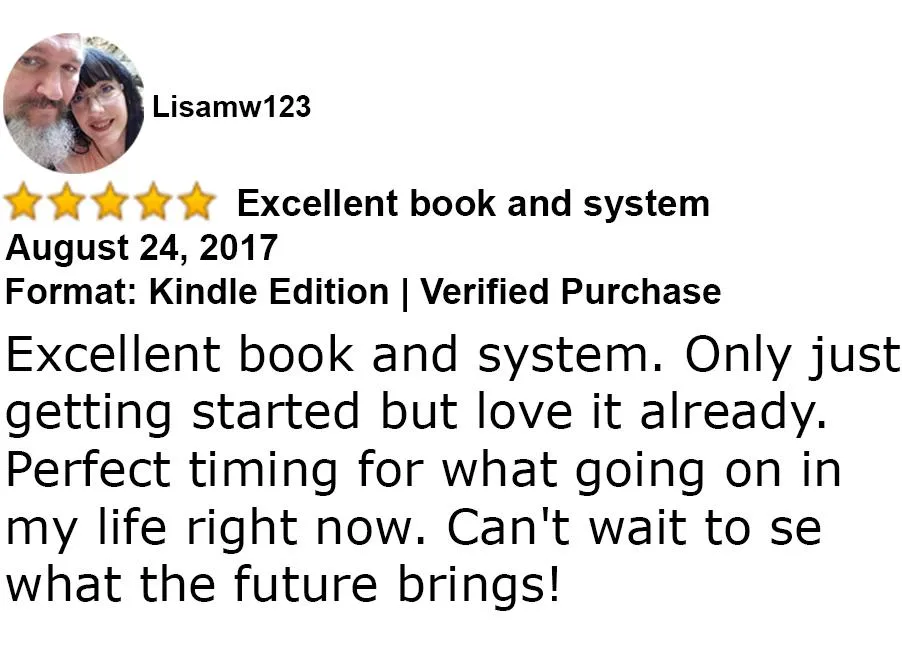
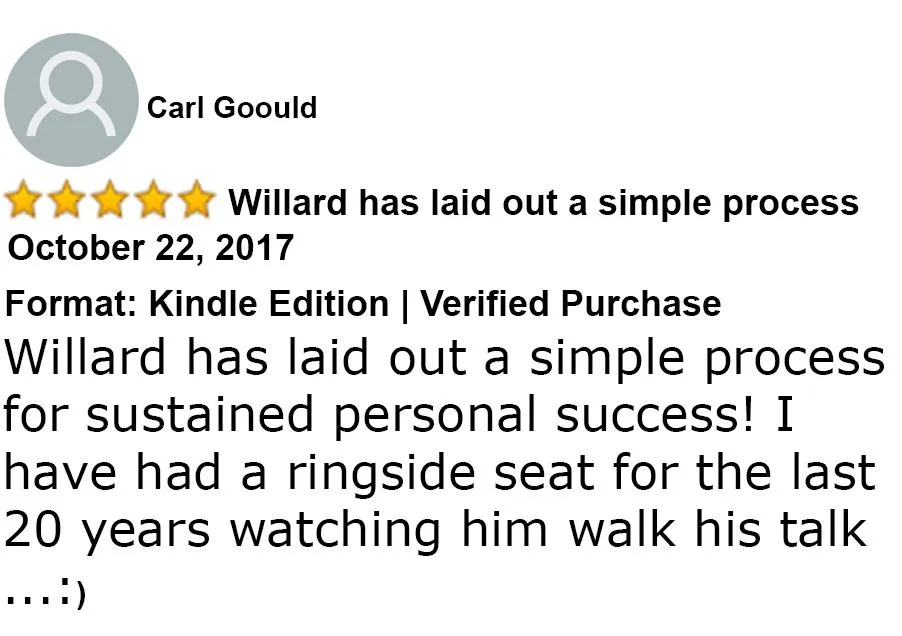
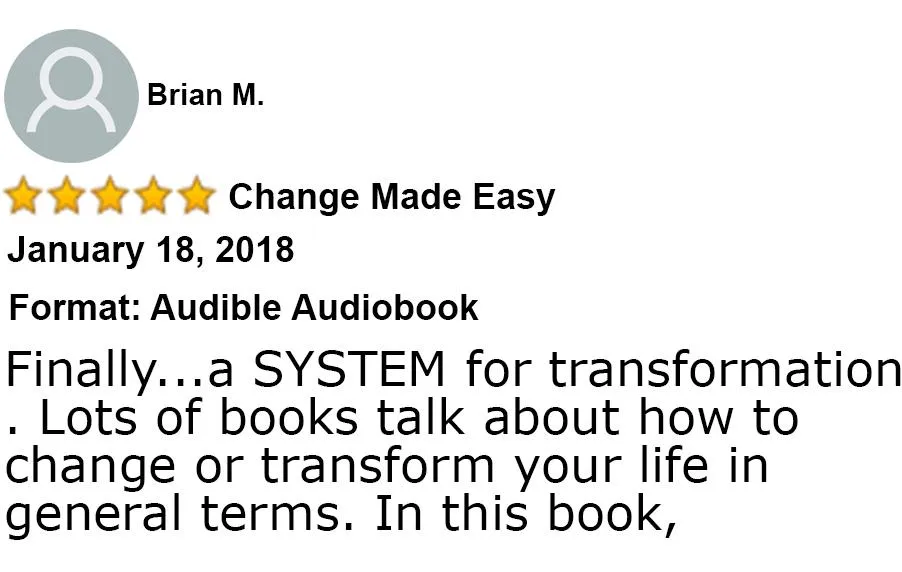
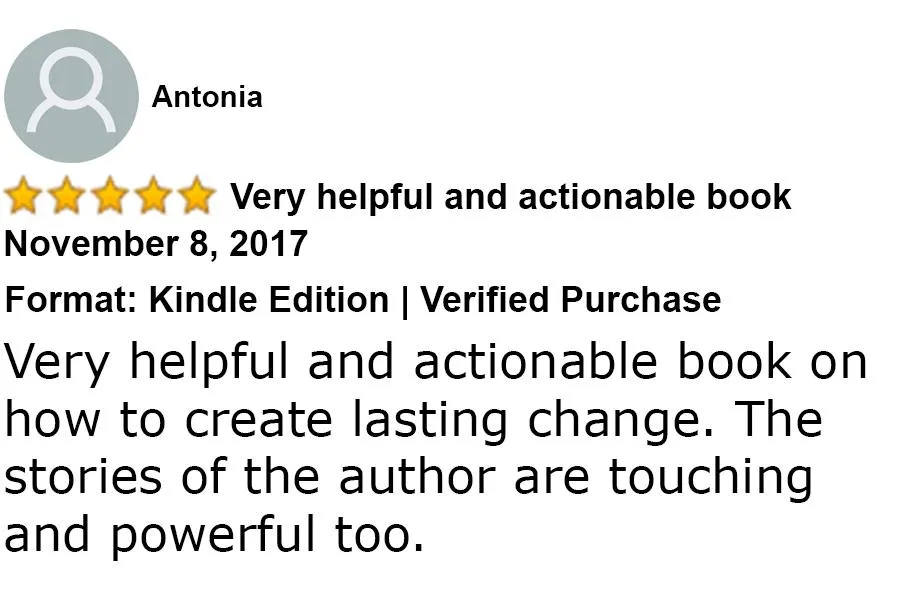




© Willard Barth Enterprises 2023. All rights reserved.
© Willard Barth Enterprises 2023.
All rights reserved.





